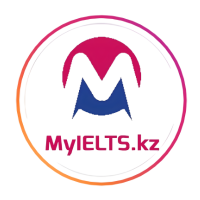В августе 2017 года кандидатам на официальных экзаменах IELTS в некоторых странах пришлось писать эссе на тему о том, нужно ли школам вводить предмет информатика в начальной школе наряду с чтением, письмом и математикой. Давайте посмотрим — а правда, надо ли? План и готовое эссе ждет вас!
Совет:
Читайте как можно больше тем эссе и примеров к ним, чтобы обогащать свой язык новыми грамматическими и лексическими конструкциями, пополнять свой запас аргументов и узнавать что-то новое из разных сфер жизни.
Эссе ниже я написал за 25 минут — это моя оригинальная работа, а не скопированное из Интернета эссе.
Тема эссе Writing Task 2 (была на официальных экзаменах IELTS в августе 2017 года):
Some people say that computer skills should be added to primary subjects in elementary school such as reading, writing and math. Do you agree or disagree with this statement?
План эссе:
Introduction – перефразируем тему и скажем, что не согласны
Essay body 1 –
Topic sentence: компьютерные навыки дети учат не в школе:
Examples:
(1) учатся работать с гаджетами сами, без помощи родителей, когда используют компьютеры и телефоны для развлечения.
(2) даже маленькие дети обычно молниеносно понимают, как работают девайсы, и начинают их активно использовать (ищут мультфильмы онлайн или даже записывают и редактируют видео).
Essay body 2 –
Topic sentence: Школы вряд ли научат детей каким-то продвинутым компьютерным вещам:
Examples:
(1) дети легко сами учатся создавать цифровой контент, в первую очередь, в социальных сетях — они могут сделать это без учителей.
(2) некоторые даже самостоятельно производят контент для YouTube, получая продвинутые навыки без помощи системы образования.
Conclusion –
сделаем summary 2 указанных причин и повторим мнение другими словами.
Готовое эссе:
It is widely accepted that computerization has become the major characteristic of today. With this regard, it is argued that computer skills should be taught in elementary schools together with primary skills, such as reading or math. While this may seem a natural decision, I disagree with this proposition for two reasons.
Firstly, children tend to acquire such skills outside classroom. As they spend plenty of time with technology beyond school, children usually master computer skills successfully on their own, without any help of teachers or parents. For example, many children nowadays start using computers and tablets for entertainment purposes since early age because this technology is widely accessible. Starting from the age of 5 or 6, a typical child is able to turn on and off a computer, use the Internet to find online cartoons and games. Moreover, due to their natural abilities to learn faster than adults, children tend to master computer functions rather quickly. Since the majority of computer programs and applications offer user-friendly interface, many children learn to type, save and find information intuitively and without any external assistance.
Secondly, schools may hardly teach any advanced computer-related concepts which pupils do not already know. With the wide spread of social media, more and more children start using platforms, such as Instagram or TikTok, without any prior training. They learn to produce their own content in the form of pictures and videos on their smartphones and post it online. What is more, no school could teach anything more advanced than creating near-professional videos which an average young computer user may produce on video-hosting services. The number of young YouTube content creators has been on the rise recently, proving the fact that even school-age students can record video content and reach large audiences with it.
In conclusion, although computer education included in primary school curriculum may appear to be the call of the technology age, children generally learn these skills at home and usually show excellent results in this. Therefore, I believe that introducing computer literacy classes would be a waste of valuable time in school education.
349 words
Кстати, вы можете задать свой вопрос касательно IELTS, я постараюсь ответить! Напишите на admin
myielts.kz

